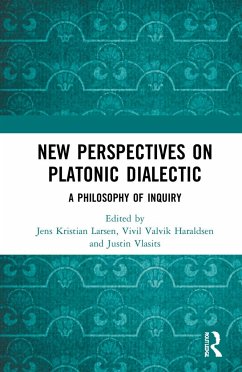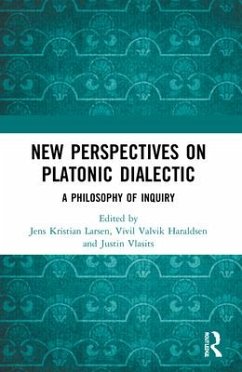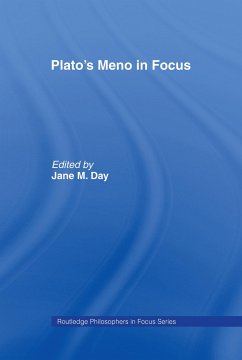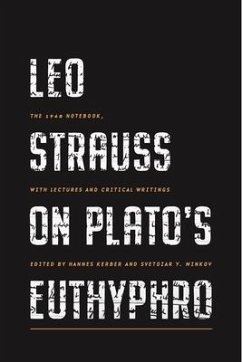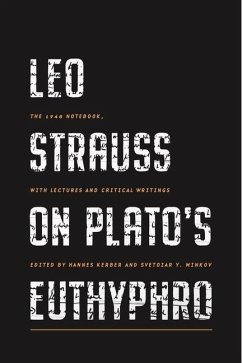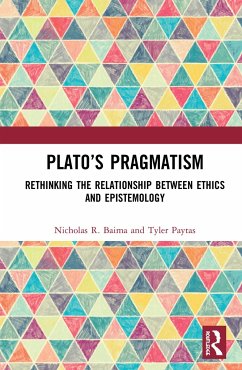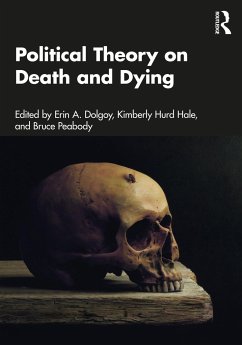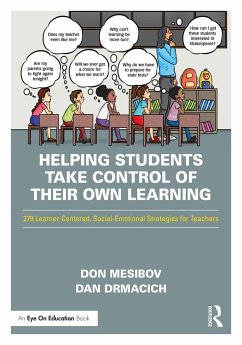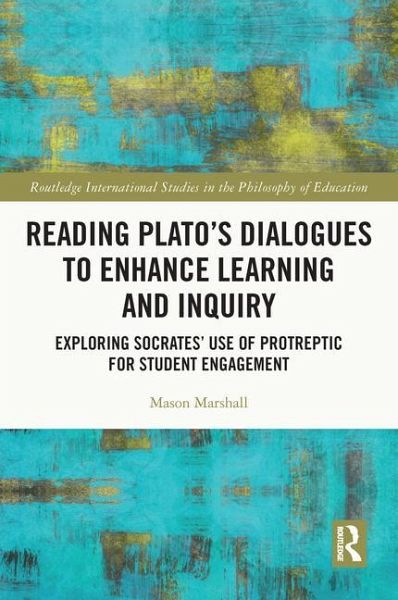
Reading Plato's Dialogues to Enhance Learning and Inquiry
Exploring Socrates' Use of Protreptic for Student Engagement
Versandkostenfrei!
Versandfertig in 6-10 Tagen
43,99 €
inkl. MwSt.
Weitere Ausgaben:

PAYBACK Punkte
22 °P sammeln!
This scholarly volume proposes protreptic as a radically new way of reading Plato's dialogues leading to enhanced student engagement in learning and inquiry.Through analysis of Platonic dialogues including Crito, Euthyphro, Meno, and Republic, the text highlights Socrates' ways of fostering and encouraging self-examination and conscionable reflection. By focusing his work on Socrates' use of protreptic, Marshall proposes a practical approach to reading Plato, illustrating how his writings can be used to enhance intrinsic motivation amongst students, and help them develop the thinking skills re...
This scholarly volume proposes protreptic as a radically new way of reading Plato's dialogues leading to enhanced student engagement in learning and inquiry.
Through analysis of Platonic dialogues including Crito, Euthyphro, Meno, and Republic, the text highlights Socrates' ways of fostering and encouraging self-examination and conscionable reflection. By focusing his work on Socrates' use of protreptic, Marshall proposes a practical approach to reading Plato, illustrating how his writings can be used to enhance intrinsic motivation amongst students, and help them develop the thinking skills required for democratic and civic engagement.
This engaging volume will be of interest to doctoral students, researchers, and scholars concerned with Plato's dialogues, the philosophy of education, and ancient philosophy more broadly, as well as post-graduate students interested in moral and values education research.
Through analysis of Platonic dialogues including Crito, Euthyphro, Meno, and Republic, the text highlights Socrates' ways of fostering and encouraging self-examination and conscionable reflection. By focusing his work on Socrates' use of protreptic, Marshall proposes a practical approach to reading Plato, illustrating how his writings can be used to enhance intrinsic motivation amongst students, and help them develop the thinking skills required for democratic and civic engagement.
This engaging volume will be of interest to doctoral students, researchers, and scholars concerned with Plato's dialogues, the philosophy of education, and ancient philosophy more broadly, as well as post-graduate students interested in moral and values education research.





